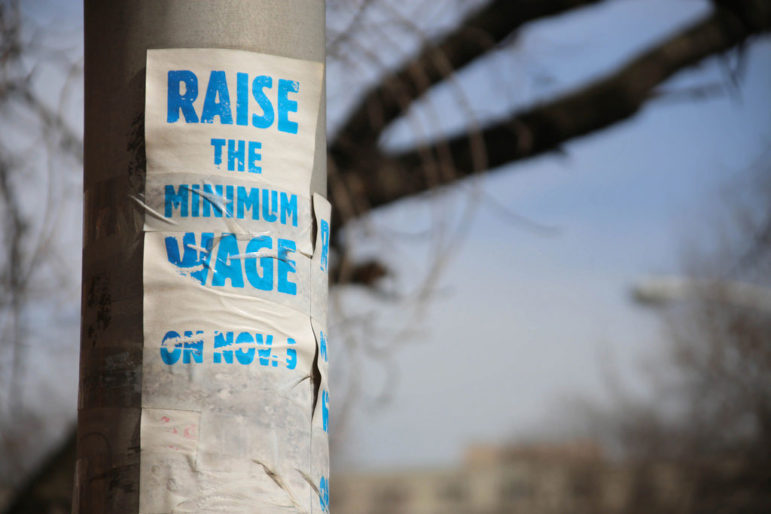
November 9, 2016; The Atlantic
Lower income workers in four states will see minimum wage increases as a result of successful ballot questions. In Arizona, Colorado, and Maine, pay floors are scheduled to rise by at least $3.75 to $12 an hour, and in Washington, the minimum wage will rise to $13.50 by 2020. Additionally, a referendum that would have cut the minimum pay of workers under the age of 18 in South Dakota was defeated. Mandated sick leave measures (for the 45 percent of American workers who do not have such luxuries) passed in Arizona and Washington. Some positive momentum is growing for such measures in both red and blue states. (Trump, of course, won in Arizona and Clinton in Washington.)
On the other hand, union support–related measures found a mix of reactions. As the Atlantic reports:
In Virginia, where workers in unionized workplaces are not obligated to pay union dues, voters defeated a measure that would make that a feature of the state constitution. To the chagrin of labor unions, a similar proposal in Alabama succeeded. Meanwhile, in South Dakota, a measure that would have strengthened unions by allowing them to collect dues from non-members was overwhelmingly defeated.
Sign up for our free newsletters
Subscribe to NPQ's newsletters to have our top stories delivered directly to your inbox.
By signing up, you agree to our privacy policy and terms of use, and to receive messages from NPQ and our partners.
The American Prospect’s Justin Miller predicts that things are about to get really ugly for the labor movement under Trump. At the very least there is some very low hanging fruit in terms of the rescinding of regulation in administrative actions, as we discussed this past Monday:
Republicans and their business lobbyist colleagues hope to roll back every single one of President Obama’s labor initiatives that were, slowly but surely, tilting the regulatory system more in favor of worker power. At the top of the list is the new overtime rule that is set to double the salary threshold (with future increases indexed to inflation) and give millions more workers access to overtime pay in December. The full strength of the rule as it stands now is unlikely to remain intact.
Miller adds, “Obama’s executive orders that hike up wages and mandate paid sick leave for federal contract workers and require that their employers disclose past labor law violations can disappear with the stroke of Trump’s presidential pen.”
As NPQ has written previously, nonprofits should not stay quiet about this issue. Wage justice has advanced quickly in the past few years, and labor unions, which are unlikely to be the apple of the incoming administration’s eye, will need broad-based support and engagement.—Ruth McCambridge













